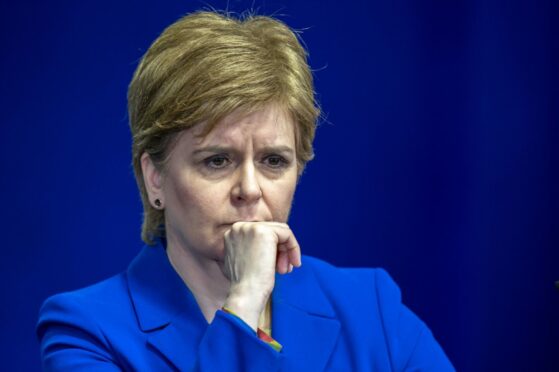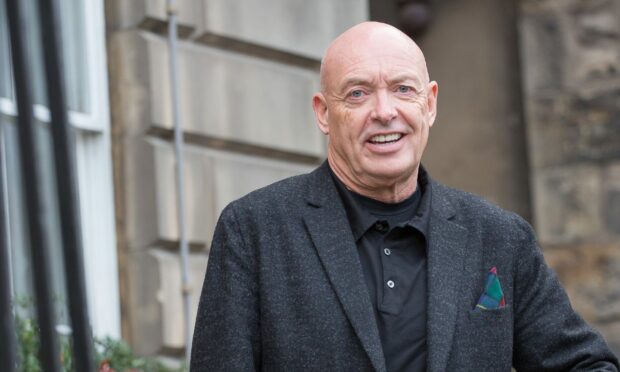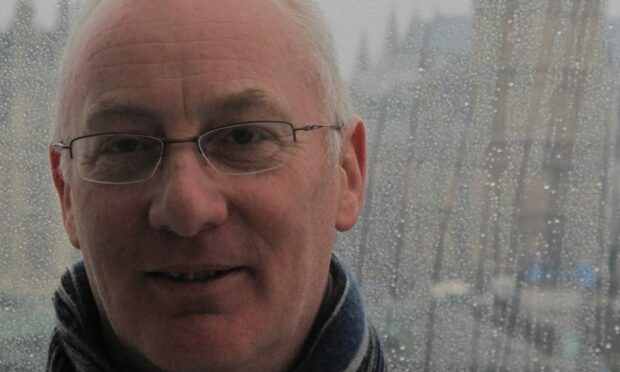The SNP’s gender reforms hogged the headlines when they were blocked by the UK Government and split public opinion.
But it’s not the only piece of legislation that has been getting Nicola Sturgeon into some difficulty.
Here we look at some other proposals from the SNP – including bottle deposit returns, a national care service and alcohol advertising bans – which may be well-intended, but also risk hitting the buffers.
And you can listen to more in-depth discussion with expert Professor James Mitchell on the wider problems at parliament on the February 10 episode of our award-winning politics podcast, The Stooshie.
1. Bottle deposit scheme
A new deposit return scheme set to go live in Scotland later this year will mean consumers have to pay 20p extra when buying drinks in a single-use container.
Customers will be able to get the money back if they take their can or bottle to return points which will be placed across Scotland.
Some business people warn the law will leave shoppers paying higher prices and increase costs for companies due to registration fees.
A top lawyer claims the initiative may clash with UK law and could create trade barriers between Scotland and the rest of Britain.
The UK Government plans to bring in a similar scheme, but not until 2025.
Ex-SNP minister Fergus Ewing branded the scheme a “disaster” and urged his party chief to pause it.
Mr Ewing warned the scheme could turn into a “catastrophe” and claimed businesses are living in a “state of fear”.
2. National Care Service
Ms Sturgeon’s government wants to overhaul all social and personal care services into one centralised body by 2026.
This new National Care Service would then be split into regional boards. It would be answerable to health ministers instead of local authorities.
However, care bosses, council chiefs and trade unions have been critical.
In a consultation, health boards said there was no evidence the new service would improve care.
Robert Kilgour, who owns care homes across Scotland including in Perthshire, feared the government was “ploughing ahead” despite concerns.
The SNP has faced questions over whether it is wise to fork out more than £1 billion on creating the new body given ongoing economic pressures.
In a report published on February 3, Holyrood’s delegated powers and law reform committee said the redesign should not go ahead in its current form.
3. Alcohol advertising ban
Further down the line, the Scottish Government could face a tough time justifying plans to restrict alcohol advertising.
The SNP says action is necessary to cut down on excessive drinking in Scotland and prevent children from being exposed to alcohol at a young age.
But the whisky industry warns the proposed law could leave firms unable to sell branded merchandise or advertise distillery tours.
It is not yet clear how far the SNP will go with restrictions, but the government states they want measures to reduce the volume of marketing to be “as comprehensive as possible”.
Ms Sturgeon assured MSPs any ban on advertising would not see famous whisky firms forced to cover up their names outside distilleries.
Lessons from the past: Football sectarianism
In 2012, Alex Salmond’s SNP administration brought in the controversial Offensive Behaviour at Football and Threatening Communications Act, which aimed to clamp down on bigotry.
The measures came into effect at football games across Scotland despite the SNP being the only Holyrood party in favour.
Critics of the law said it was illiberal and risked criminalising football supporters while doing little to tackle sectarianism.
The act was branded “the worst piece of legislation” Holyrood had produced and “a stain on the reputation of the Scottish legal system”.
A Dundee sheriff memorably described the law as “mince”.
MSPs later voted to repeal the divisive law in 2016 when every opposition party teamed up against the SNP.
What next for gender reform?
The SNP’s gender reforms have been left in limbo after the UK Government’s intervention.
Ms Sturgeon’s party may potentially face another Supreme Court showdown over the law, months after judges ruled Holyrood cannot hold an independence referendum without Westminster backing.
A former judge on the UK’s top court claimed the SNP were trying to “provoke constitutional rows” to boost support for ending the union.
The first minister has insisted the reforms aimed at making life easier for transgender Scots do not clash with UK-wide equalities laws.
James Mitchell: The expert view
Professor James Mitchell claimed the SNP’s gender reforms were “well-intentioned”, but failed to consider “unintended consequences” from passing the law.
The politics expert, who is Professor of Public Policy at Edinburgh University, said Holyrood cannot ignore the rest of the UK when forming legislation.
He said: “Governments cannot simply make policy without any consideration as to what your neighbour is doing.”
Prof Mitchell warned the Supreme Court should not “essentially be the second chamber of the Scottish Parliament”.
But he claimed Holyrood’s “adversarial political culture” is hampering vital policy discussions, adding: “We’re heading into a period, if we don’t watch out, where we’re going to be unable to have proper scrutiny of legislation.”
You can hear the whole interview with Prof Mitchell on this week’s edition of The Stooshie.






Conversation